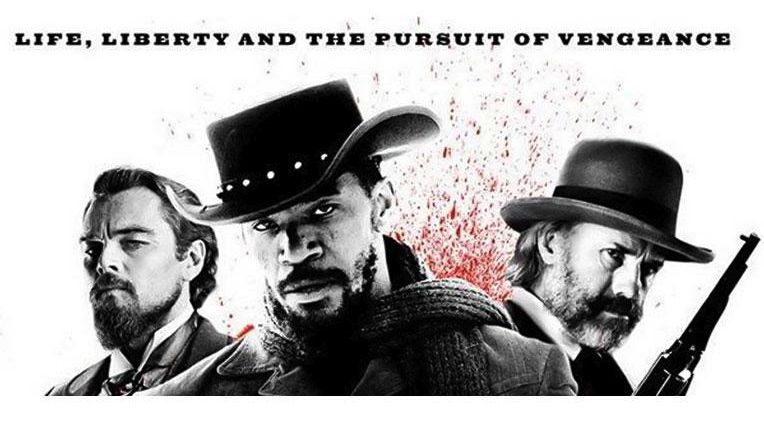Django Unchained: Brutality In The West
February 4, 2015
Quentin Tarantino is widely known for directing cinematic masterpieces beloved by millions. One explanation for his success would be that he utilizes an aspect that the majority of the movie-going community finds entertaining: violence. There’s no denying it, audiences are captivated by the blood and guts that conquer present-day media. In Tarantino’s most recent blockbuster, Django Unchained, the violence is so extreme that it begs the question, are we, as a society, becoming desensitized to death?
The film is set in 1858 during the antebellum era of the Deep South. Dr. Charles Schultz, a bounty hunter, seeks out Django, a slave, to help him catch and kill his bounty, The Brittle Brothers. Django used to work on the Brittle Brother’s plantation, so he agrees to help Dr. Schultz in exchange for his freedom, a horse, and $75.00. They invade the plantation, killing all 3 brothers in a swift and gruesome manner. Schultz, feeling he’s responsible for Django since he’s given him his freedom, offers to take him under his wing for the winter and give him a third of his earnings. Django accepts, planning to use the money to buy his wife’s freedom from slavery. After a montage of a long, bloody winter, the two vigilantes head to Candyland(another plantation) to rescue Broomhilda, Django’s wife.
Their rescue mission doesn’t go exactly as planned, as it results in a shootout in Calvin Candie’s (the plantation owner) mansion. It’s about 100 of Candie’s men against one Django, and the outcome consists of blood-soaked wallsand corpses covering the floors. It’s a grisly sight.
This scene in particular portrayed how immune our senses have become to watching a human die on television. It was almost comical the ridiculous amount of men who died in this scene, as Tarantino intended it to be. He made a point to show how Django used one man, still barely alive, as a human shield to protect him from incoming bullets. And it was hilarious.
I’m not going to lecture you about how the movies you watch are annihilating your morals, because one: that isn’t necessarily true, and two: I enjoy it as much as the next person. Desensitization is defined as the cause to be less affected by something through repeated exposure. Repeated exposure to violence is almost inevitable nowadays. How can someone not become desensitized to it? Everyone knows the movies are fake, and violence, maybe not to Tarantino’s extent, is just part of reality. We decide to acknowledge it through cinema and other art forms instead of denying its existence. But is this too much exposure?



